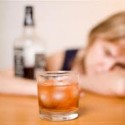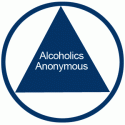Binge-drinking ‘lowers resistance’
Binge-drinking not only causes a hangover but weakens the body’s ability to fight off infections for at least 24 hours, research has shown.
Drinking large amounts of alcohol in a short time inhibits the production of signalling molecules that are vital to the immune system.
The proteins, known as pro-inflammatory cytokines, have a host of functions that are supposed to kick in when the body is under attack.
They include maturing, activating and increasing numbers of immune cells which target invaders such as bacteria and viruses.
Tests on mice given drinking water laced with ethanol – the type of alcohol found in drinks – showed they were prevented from generating key pro-inflammatory cytokines. But levels of one cytokine, called interleukin-10 (IL-10), that acts as a brake on the immune system were increased.
IL-10 has an anti-inflammatory role intended to prevent the immune system going into overdrive. It helps the body avoid harmful inflammation, but can also reduce resistance to infection.
The scientists who carried out the experiments wanted to see if results previously seen in isolated cells could be repeated in living animals. Some cytokines were still not “on duty” as long as 24 hours after the mice were dosed with alcohol.
Study leader Dr Stephen Pruett, from the College of Veterinary Medicine at Mississippi State University in the US, said: “The timeframe during which the risk of infection is increased might be at least 24 hours. A persistent effect of ethanol on cells is indicated, such that inhibition of the response of some cytokines occurs even after the ethanol is cleared.”
Binge-drinking is loosely defined as consuming enough alcohol in a single drinking session to get intoxicated.
In the UK, it is said to account for 40% of all men’s and 22% of all women’s drinking experiences. The behaviour is most common among young people aged 16 to 24, with 36% of men and 27% of women admitting to binge-drinking at least once a week.
source: Press Association

